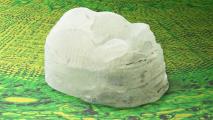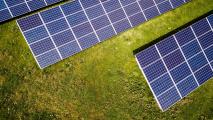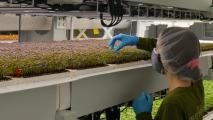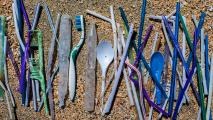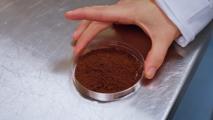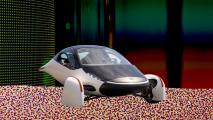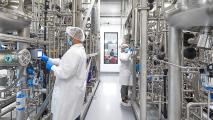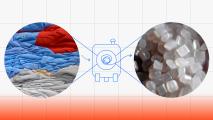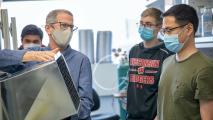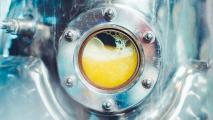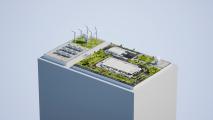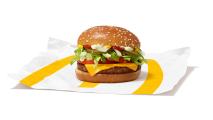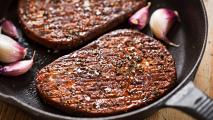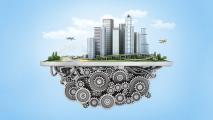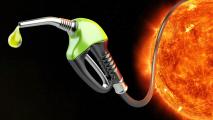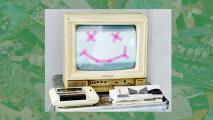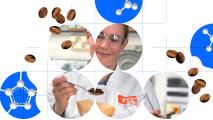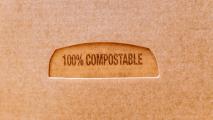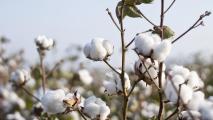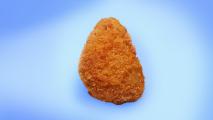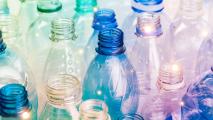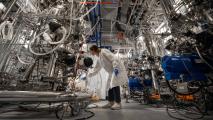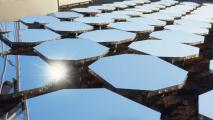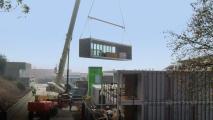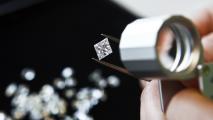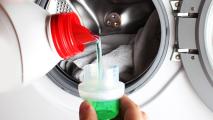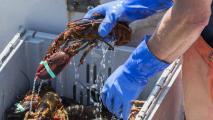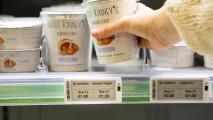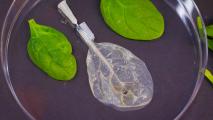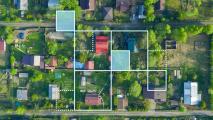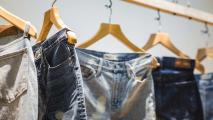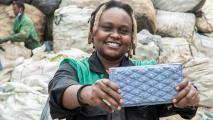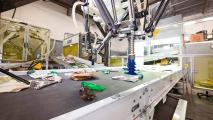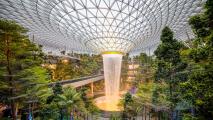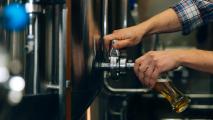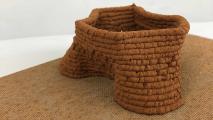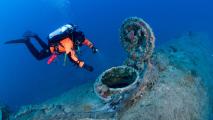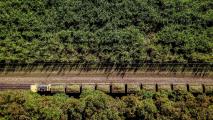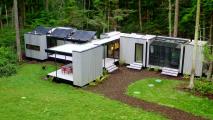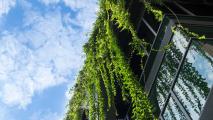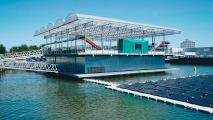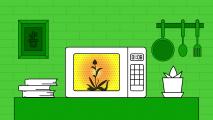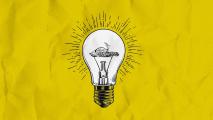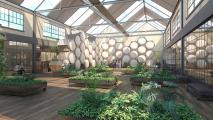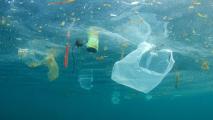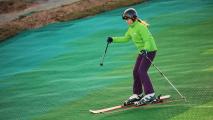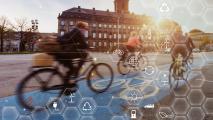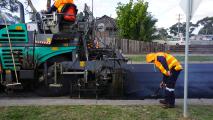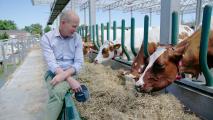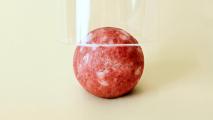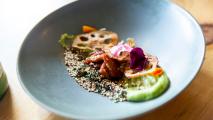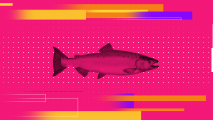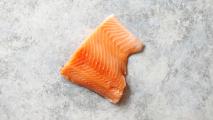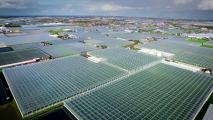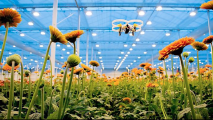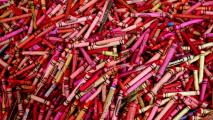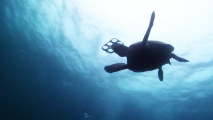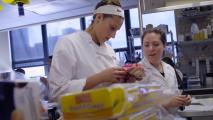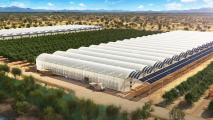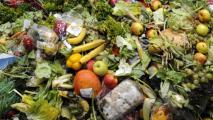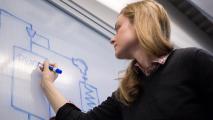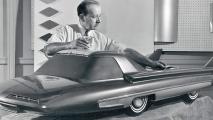Field: Sustainability
Elon Musk: Europe should revive nuclear energy
The Ukraine crisis has highlighted Europe's dependence on Russia for fossil fuels. Is more nuclear energy the solution?
MIT’s new plant-based material could replace plastics
Using cellulose from wood, MIT researchers have made a plant-based material tough as bone and hard as aluminum.
First solar canal project is a win for water, energy, air and climate in California
California’s aging power infrastructure has contributed to catastrophic wildfires and multiday outages. Solar canals can help.
MIT spinoff plans to drill 12 miles into Earth’s crust
MIT spinoff Quaise Energy is building a drill that vaporizes rock so that we can tap into the geothermal energy miles below our feet.
The world’s largest vertical farm is opening in Pennsylvania
Upward Farms plans to build what will be the world’s largest vertical farm in Pennsylvania — and fish are going to fertilize its crops.
New biodegradable straws are made by bacteria
New biodegradable straws developed in China are as cheap as plastic, stronger than paper, and made from edible materials.
Cities are using beets to deice streets this winter
Cities across the U.S. are exploring less damaging rock salt alternatives — and beet juice is one of the most promising.
Earthships: The sustainable buildings made from trash
Interest in Earthships, a type of off-the-grid home built from old tires, is picking up as people look for ways to live more sustainably.
Series|
Just Might Work
Inside the lab inventing “coffee” without beans to save the planet
Almost all of the last wild forests will have to be destroyed to support the growth of coffee.
Solar powered cars could soon hit the streets — but can they be efficient enough to go mainstream?
If they work, solar-powered cars could be great for the environment. Here's the startups working to make that happen.
Inside the world’s most advanced cultivated meat facility
UPSIDE Foods (formerly Memphis Meats) is offering consumers tours of “the world’s most advanced cultivated meat production facility.”
Series|
Just Might Work
Fast fashion is killing the planet. These chemists are fighting back
Your clothes are mostly plastic. These chemists have figured out how to recycle them.
Students get $5 million from Elon Musk for carbon-removal ideas
An Elon Musk-funded XPrize competition has given teams of students $5 million to develop ideas for carbon removal systems.
Are mini reactors the future of clean energy?
The U.K is giving Rolls-Royce nearly $300 million to develop small modular reactors (SMRs) to increase its supply of clean energy.
You can repair this sustainable phone yourself
Fairphone’s sustainable phone is easy to repair and contains ethically sourced materials — two major departures from the industry standard.
Series|
Just Might Work
The secret lab making the most sustainable food in the world
The secret lab making the most sustainable food in the world
Data centers need to be greener — Microsoft is leading the way
Microsoft’s plan for sustainable data centers includes more renewable energy, better temperature control, and new construction materials.
McDonald’s McPlant takes plant-based meat mainstream
McDonald’s McPlant, a burger with a plant-based meat patty, is now available at select locations in the U.S. for a limited time.
Fungus-based “mycoprotein” may be the next future food
Startups around the world are racing to get mycoprotein — food based on fungus — to plates.
The world will electrify. This technology can power our sustainable future.
In partnership with Turntide
Attacking climate change requires reimagining our buildings and vehicles as intelligent systems. And it all starts with a smart motor.
Series|
Make It Count
Artificial photosynthesis turns CO2 into sustainable fuel
In partnership with Million Stories
A greener future by 2035 is in arm's reach with this new tech decarbonizing the transportation industry.
Series|
Challengers
This Gen-Z CEO is taking on the $20 billion tampon industry
Rehab, re-centering, and rebirth: it’s the true story of a Gen Z CEO who wanted to spearhead a movement for better period care.
Lab-grown milk proteins prove more environmentally friendly
It’s less environmentally costly to produce milk proteins in the lab than to source them from cows, according to a new report.
Can tech rentals solve the problem of electronic waste?
To combat the problem of electronic waste, German startup Grover is now selling Americans subscriptions to laptops, phones, and other tech.
Scientists make sustainable coffee from lab-grown cells
Finnish researchers are making sustainable coffee in the lab to combat the negative environmental effects of coffee production.
“Agrihood” puts a farm in the center of Silicon Valley housing
An “agrihood” under construction in Santa Clara, CA, will give low-income residents access to cheap produce grown onsite.
Think smart about disposable packaging with this scorecard
A new scorecard called the Understanding Packaging (UP) Scorecard is helping businesses make sustainable decisions on disposable packaging.
Unique underwater sculptures thwart harmful illegal fishing
Paolo Fanciulli, a fisherman from Maremma, is sinking artists’ sculptures to the seafloor to stop bottom trawling.
Returning old clothes to the earth can help cotton grow again
An Australian cotton industry trade group aims to return used cotton cloth to the soil to help new cotton grow.
Series|
Hard Reset
Murder-free chicken nuggets: Real meat grown in a lab
Would you eat lab-grown chicken meat? This Singapore restaurant is the first to serve cell-cultured meat to diners.
E. coli turns plastic waste into vanillin
Scientists have engineered E. coli bacteria to convert plastic waste into vanillin, an in-demand compound used in vanilla flavoring and more.
Cultured meat is now being mass-produced In Israel
Israeli startup Future Meat Technologies’ industrial-scale cultured meat production facility is designed to get lab-grown meat onto consumers’ plates ASAP.
Series|
Hard Reset
How mirrors could power the planet… and prevent wars
If adopted globally, concentrated solar power could make major waves in manufacturing, not to mention prevent wars over oil and mitigate climate change.
Lithium mining just became a water sport
A team of scientists claims they’ve created an affordable method for extracting lithium from seawater, as an alternative to lithium mining.
Series|
Hard Reset
Do buildings have to be permanent?
Modular construction involves transporting prefabricated buildings and connecting them on-site. It’s like LEGOs on steroids, and it could transform our cities.
Series|
Just Might Work
The case for drinking treated wastewater. (Yes, from the toilet.)
Concern over droughts and water pollution have ignited a unique solution for preserving one of our most vital resources — advanced wastewater treatment for human consumption, also known as direct potable reuse.
A world’s first: Printable electronics now fully recyclable
Duke researchers show new recyclable electronics technique that reclaims nearly 100% of carbon-based printed transistors using water and sound.
World’s biggest jeweler will only sell lab-created diamonds
Jewelry company Pandora has announced plans to start using only lab-created diamonds in its products, officially turning its back on diamond mining.
This laundry detergent is made from recycled carbon
Consumer goods company Unilever is now selling a laundry detergent that’s made using recycled carbon instead of traditional fossil fuels.
Startup aims to put lab-grown lobster on the menu
Wisconsin startup Cultured Decadence is developing lab-grown lobster meat in the hopes of meeting a demand currently threatened by climate change.
This new crystal, produced with gunpowder, is stronger than diamond
Researchers have developed hexagonal diamonds — the mineral lonsdaleite — large enough to study in a lab and test their stiffness and hardness.
Digital price tags auto-discount groceries to avoid food waste
A startup called Wasteless uses dynamic pricing and electronic shelf labels to help minimize food waste at grocery stores.
Spinach skeleton becomes base for lab-grown meat
After spinach leaves were stripped of their plant cells, the skeletons were used as a scaffold for lab-grown meat.
What is the future of wave energy?
The Federal Energy Regulatory Commission has approved the first commercial-scale, utility grid-connected test site for wave energy.
Are ancient city grids still the best way to build?
In partnership with Ford
Although their roots date back thousands of years, city grids are starting to inspire modern urban planners. Is the grid still the best way to build?
A sweet way to recycle cotton — turn it into sugar
What’s better than recycled cotton — transforming it to sugar for reuse. Researchers have a recipe for success.
Diy factory turns plastic waste into super-strong bricks
Kenyan startup Gjenge Makers turns plastic waste into plastic bricks that are stronger, lighter, and cheaper than their concrete counterparts.
Recycling robot keeps waste out of landfills
AMP Robotics has developed a recycling robot that uses AI to sort recyclables twice as quickly as humans can.
The ugly truth about toxic e-waste
It’s estimated that by 2030, the amount of e-waste discarded globally will grow to 74.7 million tons per year. But fixing the problem is going to take more than recycling.
What does a solarpunk future look like?
The writers, artists, and activists of the solarpunk movement envision a future in which we’ve overcome the problems inspiring today’s dystopian sci-fi.
Brewery is world’s first factory fueled by iron powder
A Dutch brewery is using iron powder to generate clean energy, marking the first industrial use of iron fuel.
Adidas’ sustainable shoes are string art made by a robot
The Adidas Futurecraft team has unveiled a pair of sustainable shoes made by a robot that weaves individual threads like it's creating string art.
Doctors fighting deadly climate change
In partnership with Skoll Foundation
These doctors are coming together to address their collective carbon footprint, explore new solutions, and improve sustainability in healthcare.
3D printed homes could soon be made out of dirt
By transforming soil into a construction material for 3D printed homes and other structures, researchers hope to slash concrete's environmental impact.
Divers remove wildlife-killing “ghost nets” from shipwreck
The Healthy Seas initiative removes wildlife-killing “ghost nets” from the ocean so that they can be recycled into useful Econyl yarn.
Want to save the planet? start with reinventing the motor
In partnership with Turntide
This highly efficient switched reluctance motor has the ability to save manufacturers millions of dollars and significantly reduce their carbon emissions.
How ‘mental time travel’ can lead us to sustainability
Bina Venkataraman, author of The Optimist's Telescope, believes that modern society’s shortsightedness is the root of many avoidable catastrophes.
Fertilizer feeds half the world. Can we make it without fossil fuels?
Fertilizer is needed to feed the world, but its production comes with a carbon footprint. This solar-powered strategy may reduce that.
The world's first floating 3D printed house
A group in the Czech Republic is using a 3D printing robot to construct what it claims will be the world’s first floating 3D printed house.
Series|
Challengers
This carbon-negative dream house ships in a box
A startup described as the “IKEA of houses” is determined to make beautifully-designed, energy efficient homes affordable for everyone.
A new approach to green building could reverse climate change
The building sector is one of the biggest contributors of greenhouse gas emissions. But new research suggests that trend could stop, and even reverse because of a new type of green building.
24/7 solar power is on the horizon
Researchers at the Air Force Research Laboratory are planning new solar power tech that collects energy in outer space and laser-beams it back to Earth.
Open-sourcing the blueprints for a nuclear power plant
The Energy Impact Center has open-sourced nuclear power plant blueprints in an attempt to encourage the adoption of eco-friendly nuclear energy.
Can the maritime industry go green? Washington ferries show us how
Washington ferries will soon make the switch from diesel to batteries, becoming the world’s largest hybrid-powered, car-carrying ferries.
Back to the future: Classic cars go high tech
This boutique auto shop is crafting quality, custom cars that combine vintage designs with the latest technologies. And perhaps more importantly, they’re challenging the widely accepted concept that we live in a disposable world.
In a circular economy, leaders look to eliminate waste
A step further than recycling, a circular economy would eliminate the idea of garbage completely. But will consumers hop on board? We gave it a try, and here's our honest review.
The fight to end illegal logging
Citizen scientists are collecting tree samples to build a genetic database that will help identify the origins of stolen lumber and stop illegal logging.
This big wave surfer is changing how we fight wildfires
Fire retardant spray contains toxins that are harmful to the environment and first responders, but Jeff Denholm is looking to change that.
Floating farm takes sustainable agriculture to the next level
Inspired by the food shortages witnessed in New York City following Hurricane Sandy, this husband and wife team came up with the idea for a sustainable farm that floats on the sea.
A “death-ray” for weeds could replace chemical weed killers
Dr. Graham Brodie of the University of Melbourne is working on a device for zapping stubborn weeds with microwaves.
The dark toll of light pollution
Bird populations are paying the price for our electric lights. These volunteers are working to change that.
Series|
Seachange
Carbon capture technology explained
Cutting-edge carbon capture technology is bringing the world’s top scientists and engineers one step closer to solving the climate change puzzle.
Human composting could help crowded cities bury their dead sustainably
Working toward sustainability, cities are searching for ways to make funerals more eco-friendly. Green burials and human composting could be the solution.
These scientists extract plastic from bacteria
By 2050, there may be more plastic by weight in the ocean than there are fish. Canadian innovator Luna Yu hopes to change this by turning waste into biodegradable plastics.
Getting aerial ridesharing off the ground
It’s been the ultimate futuristic dream for decades: flying cars! But now, the future finally has a deadline. At least to start, it will land in the form of a small air taxi operated by Uber, not something you’ll park in your garage.
Series|
Future of Cities
Futuristic Copenhagen architecture builds on water
The innovators of Copenhagen architecture are pioneering new solutions to urban living challenges, from floating parks to man-made islands.
Series|
Future of Cities
Copenhagen turns trash into ski slopes
Humans throw away 3.5 million tons of waste every day. Copenhagen is taking waste management to new heights (literally) to deal with trash from residents, making it the sustainable city of the future.
Series|
Future of Cities
The sustainable city of the future: Copenhagen, Denmark
By 2050, 70% of the world’s population will live in urban areas (up from 50% now). With the climate crisis worsening, how can we support this urban trend in a sustainable way?
Paving the way with recycled roads
The world is facing a massive build up of waste. But this solution of recycled roads may pave the way for a cleaner future.
Merging nature and sustainable design: An interview with Daan Roosegaarde
From towers that create pockets of clean air to a luminescent bike path that glows like children's ceiling stars, Daan Roosegaarde's entire practice is centered around the beauty of living with nature and removing pollution from urban life.
The world's first floating dairy farm
In the search for more sustainable methods of global food production, one couple in the Netherlands is taking an unconventional approach: they have become the operators of the world's first and only floating dairy farm.
Series|
Future of Food
Inside the world of gourmet lab meat
A future of eating meat without ethical or environmental implications is more real than ever before. But will people eat it food grown in a lab?
Clean meat: A new protein is making its way onto the chef's table
Clean meat is becoming a more widely known, and much loved food category. But do you expect to see it on your gourmet plate any time soon? These chefs think yes.
Series|
Future of Food
It’s time to embrace the frankenfish
Would you eat fish that was genetically designed in a lab? What if it was your only option? Like it or not, GMO salmon and other futuristic foods are revolutionizing the global food system right in front of our eyes.
The first GMO salmon is coming to a store near you
After a 30-year struggle, Atlantic salmon modified with a growth hormone gene from Chinook salmon has been approved by the FDA. Its producers say it solves problems related to climate change, ocean pollution, and food scarcity. Skeptics call it playing god. Both call it the Frankenfish.
These pioneers are building the sustainable food systems of tomorrow
In a new Freethink original series, Michael O'Shea goes around the world to introduce us to the scientists who are working hard to ensure that we can feed our future world.
Series|
Future of Food
A look inside farms of the future
With a growing population, changing consumption behavior and a climate crisis, how will we feed our future world?...
Ever wonder what happens to leftover crayons?
This dad is melting down old crayons for kids who need them most.
The edible six pack ring that's saving marine animals
18 billion pounds of plastic are dumped in the ocean every year. This microbrewery created biodegradable six pack rings to help stem the tide.
The student laboratory reinventing food to stop waste
Inside the food laboratory inventing new foods to prevent waste.
Growing food with seawater
This designer invented a greenhouse that lets you grow food with seawater.
Reducing food waste and feeding the hungry
What if instead of throwing out leftover food, we used it to feed the hungry?
Dr. Leslie Dewan on the future of nuclear energy
We dive into the viability and future of nuclear energy in the U.S. and around the world with Leslie Dewan, CEO of...
Four crazy ideas from the golden age of nuclear
For a couple decades people thought nuclear power was the answer to pretty much everything. And they came up with...
Three reasons we don't have more nuclear power in the US
Many think of Chernobyl and Three Mile Island when they hear nuclear power. But nuclear's struggle to gain a...
Can this startup power the world with nuclear?
Leslie Dewan and her team at Transatomic believe they've figured out a safe, scalable, cost-effective way to power...

